post-coup literary flurry by alfred a. yuson
from kriptokin, philippine star 03/13/2006
Surprisingly, the literary scene heats up. It only used to be around August to September that this happens in Manila, and maybe in the summer months when writing workshops are conducted in Baguio, Iligan and Dumaguete.
There were times when a mass book launching would be held around Valentine’s Day. But for so many literary events to be conducted in early March, this late in the school season, is extraordinary. Call it a post-coup flurry.
Last Tuesday, launched at the Conspiracy Garden Cafe on Visayas Avenue was Kaakuhan: A Collection of Poems by Alejandro G. Abadilla, in time for his centennial celebration.
Poets who joined in the tribute by reading AGA’s poems included Roberto Añonuevo, Romulo Baquiran Jr., Bayani Abadilla, Jose Lacaba, Khavn de la Cruz, Ony Carcamo, Bienvenido Lumbera, Mike Coroza, Vim Nadera, Benilda Santos, Virgilio Almario, Lilia Q. Santiago, Joi Barrios, Rafael Dante Cruz, Rogelio Mangahas, Malaya Abadilla, Rebecca Añonuevo and Teo Antonio.
On March 10, the CD version of Abadilla’s poems was launched at Pulungang Recto in UP, coinciding with the UP Portfolio Professorial Chair lecture on "Abadillismo" by Prof. Vim Nadera, who directed and produced the unique CD in cooperation with C&E Publishing Inc.
At 4 p.m. tomorrow, March 14, Dr. Ophelia A. Dimalanta, director of the UST Center for Creative Writing & Studies, supervises the launch of TOMAS 10, a special issue of the university’s literary journal, edited by yours truly, with illustrations by my buddy Igan D’Bayan.
Readings will be done by the Thomasians represented in the distinctive anthology of poetry: Lourd de Veyra, Ricci Guevara, Allan Pastrana, Carlomar Daoana, Anna Bernaldo, Natasha Gamalinda, Gelo Suarez and Joseph Saguid. Four other UST alumni whose poems are featured in TOMAS 10 – together with those of a dozen poets from South Africa, Kenya, India, Tibet, Holland, England and the US – are current expatriates: Eric Gamalinda, Bino Realuyo, Merlinda Bobis and Wendell Capili.
To celebrate Spring of the Poets and Francophone Week, Alliance Française de Manille, the Cultural Service of the French Embassy, the Royal Embassy of Cambodia, the Embassy of Canada, the Embassy of Romania and the Embassy of Switzerland will host an "Evening of Poetry" starting at 7 p.m. on Thursday, March 16 at the Alliance Française de Manille at 209 Nicanor Garcia St. (formerly Reposo St.), Makati City.
Dwelling on the theme "Songs of the City" are poet-readers Jimmy Abad, Rio Almario, Marj Evasco, Virgie Moreno, Dinah Roma, Beni Santos, Gelo Suarez, Joel Toledo, Naya Valdellon and Krip Yuson, together with Francophone poets from Cambodia, Romania, Switzerland and France.
For more information, interested parties may contact Alliance Française de Manille at 895-7883 or by e-mail at lthevenin@alliance.ph
Unfortunately, a conflict of schedule will divide Metro Manila’s literature lovers that evening. Another event features the book launching, starting at 6 p.m. at Conspiracy Garden Café, of Latitude: Writing from the Philippines and Scotland, co-edited by Angelo R. Lacuesta and Toni Davidson, as sponsored by The British Council and Anvil Publishing.
The short story collection features works by seven Filipino writers (Dean Alfar, Butch Dalisay, Lacuesta, Dada Felix, Menchu Sarmiento, Bing Sitoy and Krip Yuson) and a counterpart set of seven writers from Scotland (Davidson, Iain Maloney, Adrian Searle, Zoe Strachan, Mela Vich, Mark Waddell and Louis Welch).
The book has already been launched in Edinburgh, where a good number of Filipino writers have visited on their way to fellowships at the International Writers Retreat at Hawthornden Castle in the Midlothians.
It will be recalled that a few years back, Anvil also published a similar "bilateral" anthology, Love Gathers All, featuring love poems by Filipino and Singaporean poets.
Exploring the same vein is TOMAS 10, which partners contemporary Philippine poetry with that of foreign voices. Following is my introduction to this landmark anthology.
Surprisingly, the literary scene heats up. It only used to be around August to September that this happens in Manila, and maybe in the summer months when writing workshops are conducted in Baguio, Iligan and Dumaguete.
There were times when a mass book launching would be held around Valentine’s Day. But for so many literary events to be conducted in early March, this late in the school season, is extraordinary. Call it a post-coup flurry.
Last Tuesday, launched at the Conspiracy Garden Cafe on Visayas Avenue was Kaakuhan: A Collection of Poems by Alejandro G. Abadilla, in time for his centennial celebration.
Poets who joined in the tribute by reading AGA’s poems included Roberto Añonuevo, Romulo Baquiran Jr., Bayani Abadilla, Jose Lacaba, Khavn de la Cruz, Ony Carcamo, Bienvenido Lumbera, Mike Coroza, Vim Nadera, Benilda Santos, Virgilio Almario, Lilia Q. Santiago, Joi Barrios, Rafael Dante Cruz, Rogelio Mangahas, Malaya Abadilla, Rebecca Añonuevo and Teo Antonio.
On March 10, the CD version of Abadilla’s poems was launched at Pulungang Recto in UP, coinciding with the UP Portfolio Professorial Chair lecture on "Abadillismo" by Prof. Vim Nadera, who directed and produced the unique CD in cooperation with C&E Publishing Inc.
At 4 p.m. tomorrow, March 14, Dr. Ophelia A. Dimalanta, director of the UST Center for Creative Writing & Studies, supervises the launch of TOMAS 10, a special issue of the university’s literary journal, edited by yours truly, with illustrations by my buddy Igan D’Bayan.
Readings will be done by the Thomasians represented in the distinctive anthology of poetry: Lourd de Veyra, Ricci Guevara, Allan Pastrana, Carlomar Daoana, Anna Bernaldo, Natasha Gamalinda, Gelo Suarez and Joseph Saguid. Four other UST alumni whose poems are featured in TOMAS 10 – together with those of a dozen poets from South Africa, Kenya, India, Tibet, Holland, England and the US – are current expatriates: Eric Gamalinda, Bino Realuyo, Merlinda Bobis and Wendell Capili.
To celebrate Spring of the Poets and Francophone Week, Alliance Française de Manille, the Cultural Service of the French Embassy, the Royal Embassy of Cambodia, the Embassy of Canada, the Embassy of Romania and the Embassy of Switzerland will host an "Evening of Poetry" starting at 7 p.m. on Thursday, March 16 at the Alliance Française de Manille at 209 Nicanor Garcia St. (formerly Reposo St.), Makati City.
Dwelling on the theme "Songs of the City" are poet-readers Jimmy Abad, Rio Almario, Marj Evasco, Virgie Moreno, Dinah Roma, Beni Santos, Gelo Suarez, Joel Toledo, Naya Valdellon and Krip Yuson, together with Francophone poets from Cambodia, Romania, Switzerland and France.
For more information, interested parties may contact Alliance Française de Manille at 895-7883 or by e-mail at lthevenin@alliance.ph
Unfortunately, a conflict of schedule will divide Metro Manila’s literature lovers that evening. Another event features the book launching, starting at 6 p.m. at Conspiracy Garden Café, of Latitude: Writing from the Philippines and Scotland, co-edited by Angelo R. Lacuesta and Toni Davidson, as sponsored by The British Council and Anvil Publishing.
The short story collection features works by seven Filipino writers (Dean Alfar, Butch Dalisay, Lacuesta, Dada Felix, Menchu Sarmiento, Bing Sitoy and Krip Yuson) and a counterpart set of seven writers from Scotland (Davidson, Iain Maloney, Adrian Searle, Zoe Strachan, Mela Vich, Mark Waddell and Louis Welch).
The book has already been launched in Edinburgh, where a good number of Filipino writers have visited on their way to fellowships at the International Writers Retreat at Hawthornden Castle in the Midlothians.
It will be recalled that a few years back, Anvil also published a similar "bilateral" anthology, Love Gathers All, featuring love poems by Filipino and Singaporean poets.
Exploring the same vein is TOMAS 10, which partners contemporary Philippine poetry with that of foreign voices. Following is my introduction to this landmark anthology.
*****
When my good friend, the esteemed poet and director of the University of Santo Tomas Center for Creative Writing and Studies, Ophelia A. Dimalanta, acceded to my casual offer to guest-edit an issue of TOMAS, I had to don the thinking cap to determine how a relatively young but already prestigious university literary journal could come up with a fresh, novel offering.
One notion was to devote the issue exclusively to poetry, a literary field in which a good number of UST alumni, as well as current students, have been showing excellent form. From Eric Gamalinda and Bino Realuyo, who had both studied at UST as adolescents, and who are now the most successful Filipino expatriate writers operating out of New York City, to Merlinda Bobis and Wendell Capili who are both conducting academic work in Australia, former and current Thomasians may be credited with significant contributions to contemporary Philippine poetry in English.
While much is usually made of the quality of poetry, in English or Filipino, that regularly comes out of the University of the Philippines and Ateneo de Manila University, given the roster of distinguished poets who claim either institution as their alma mater, hardly ever credited is the sustenance provided poets by the oldest university in the country, indeed, in all of Asia. The fact is that UST continues to produce an inestimable number of fine poets and writers.
With Dr. Dimalanta’s pre-eminence in the historic España, Manila campus as the doyenne of all matters literary, this has now been taken for granted. In truth, the way was paved long ago, with the emergence of such outstanding writers "out of España" as Wilfrido D. Nolledo, Francisco "Kit" Tatad, Julie Yap (to become Jullie Yap Daza), Rita Gadi, Jose David Lapuz, and a host of other outstanding fiction writers, essayists and journalists.
But in the past decades, owing to the incalculable influence of Dr. Dimalanta, it is poetry that has particularly flourished in UST. True, of the four expatriate writers I’ve mentioned, three have also made their mark in fiction, including the novel. But it is in poetry where recent graduates of literature and creative writing in UST have been showing the way in the national and international level.
More and more young people coming out of this hallowed university have been winning prizes, nationally and globally, thanks to the ongoing tradition of excellence and the constant nurturing provided by both the Center and the University of Santo Tomas Publishing House, which itself has come into its own as a dynamic and increasingly progressive institution. Both the writing center and the press have evidently benefited from the Dominican authorities’ unstinting support.
The happy convergence of inherent talent and interest, dedicated training and institutional backing makes for a lengthening list of UST poets who are among the best in the Philippines. What better way to showcase the treasure trove that is their continuing produce than by situating it in the context of a global standard of contemporary poetry – in its current myriad manifestations and divagations?
I happened to have participated in the 9th Poetry Africa festival held in Durban, South Africa in October 2005. There I met over 30 other poets who read their works to an appreciative audience for a full week.
The welter of voices was extraordinary, with its stunning wealth of styles, modes and poetic forms – from the quiet and subtle exhalations of the conventional "page poets," for whom the poem as seen on the printed page is the ultimate in creative expression, with its verbal reading only an occasional offshoot – to the wildly munificent oratory of performance poets, usually younger, who spun all sorts of technique-accented hark-back to the bardic tradition by sharing their faux-spontaneous lines with live audiences.
Why, if this is what they call "hip-hop," I said to myself in Durban, then by all means let’s have more of it. And let there be a happy merging of the spoken word, rap, performance poem, slam jam and what-have-you with the written verse, for all its dependence on traditional else evolving forms.
It was the substance of poetry as oracle that became primary. We had a communion of spirits whose sacred host was passion. And it was the poetry of openness, of no exclusion, of no borders or delimiting categories such as gender, age, color, nationality, language, and, why, yes, even poetic form.
I was aware that performance poetry had also been thriving to a certain appealing degree back home, so that to hear the slam jam poets in Durban was to be reminded of the efforts of our own performance and spoken word adherents in Manila.
A convergence and not a confrontation is what this special TOMAS issue is all about. Here we have a dozen Filipino poets exercising varied forms of poetry, in a rich, woven tapestry alongside a dozen foreign poets doing the same. To say that each contributor is of international caliber is to beg, uhmm, the issue.
Mphutlane Wa Bofelo and Leo Janssen of South Africa were the major attractions in the Durban Slam Jam contest. Lemn Sissay of the United Kingdom and Celena Glenn of the USA are seasoned Spoken Word performers who blow everyone off the stage, worldwide.
Here their poetry finds like company in the experimental, jazzed-up or rock-n-roll lines of singer-composer Lourd de Veyra and the precocious neo-Dadaist Angelo Suarez. De Veyra’s music sheets, and artist-rocker Igan D’Bayan’s illustrations, also find a counterpart in Aryan Kaganof’s in-your-face poetry that has been recited to the accompaniment of jazz, just as Sissay’s has been.
The love poems of young poets Anna Bernaldo and Natasha Gamalinda find kindred insights with those of Dutch poet Hagar Peeters, whose translated works also find a parallel in the contributions of Mamta Sagar of India and the very young Joseph Saguid of the Philippines. These last two are also represented by works in their original languages, Kannada and Filipino.
Exile poetry, often driving home strong socio-political commentary, finds expression in the haunting works of Tibetan Tenzin Tsundue, South African Gabeba Baderoon, and
Filipino expatriates Bino Realuyo, Wendell Capili and Merlinda Bobis, whose poetic prose excerpts somehow find echoes in the extended, ruminative lines of Joan Metelerkamp of Cape Town. Eric Gamalinda and Allan Pastrana deliver poems of lissome but strong cerebration, while Njoki Muhoho of Kenya and Malika Ndlovu of South Africa celebrate womanhood in all of its poignant, defiant, and regnant evocations.
Stirring the brew is a splendid "prose divider" – ironically functioning as an equalizer – an essay on the art of the lyric, subtitled "A Way to Hear," by esteemed poet-critic Dr. Gémino H. Abad, who himself grew up in the periphery of the great university on Manila’s España. He enlightens us: The ear can only be universal when it listens to echoes of poetic craft.
From Manila to Durban, then, by way of New York, London, Amsterdam, Sydney, Wollongong, Nairobi, Johannesburg, and the Himalayas, the poetry in this truly special issue of TOMAS offers a wide array of oracles. The forms are myriad, the substance lyrically strong and memorable.
One notion was to devote the issue exclusively to poetry, a literary field in which a good number of UST alumni, as well as current students, have been showing excellent form. From Eric Gamalinda and Bino Realuyo, who had both studied at UST as adolescents, and who are now the most successful Filipino expatriate writers operating out of New York City, to Merlinda Bobis and Wendell Capili who are both conducting academic work in Australia, former and current Thomasians may be credited with significant contributions to contemporary Philippine poetry in English.
While much is usually made of the quality of poetry, in English or Filipino, that regularly comes out of the University of the Philippines and Ateneo de Manila University, given the roster of distinguished poets who claim either institution as their alma mater, hardly ever credited is the sustenance provided poets by the oldest university in the country, indeed, in all of Asia. The fact is that UST continues to produce an inestimable number of fine poets and writers.
With Dr. Dimalanta’s pre-eminence in the historic España, Manila campus as the doyenne of all matters literary, this has now been taken for granted. In truth, the way was paved long ago, with the emergence of such outstanding writers "out of España" as Wilfrido D. Nolledo, Francisco "Kit" Tatad, Julie Yap (to become Jullie Yap Daza), Rita Gadi, Jose David Lapuz, and a host of other outstanding fiction writers, essayists and journalists.
But in the past decades, owing to the incalculable influence of Dr. Dimalanta, it is poetry that has particularly flourished in UST. True, of the four expatriate writers I’ve mentioned, three have also made their mark in fiction, including the novel. But it is in poetry where recent graduates of literature and creative writing in UST have been showing the way in the national and international level.
More and more young people coming out of this hallowed university have been winning prizes, nationally and globally, thanks to the ongoing tradition of excellence and the constant nurturing provided by both the Center and the University of Santo Tomas Publishing House, which itself has come into its own as a dynamic and increasingly progressive institution. Both the writing center and the press have evidently benefited from the Dominican authorities’ unstinting support.
The happy convergence of inherent talent and interest, dedicated training and institutional backing makes for a lengthening list of UST poets who are among the best in the Philippines. What better way to showcase the treasure trove that is their continuing produce than by situating it in the context of a global standard of contemporary poetry – in its current myriad manifestations and divagations?
I happened to have participated in the 9th Poetry Africa festival held in Durban, South Africa in October 2005. There I met over 30 other poets who read their works to an appreciative audience for a full week.
The welter of voices was extraordinary, with its stunning wealth of styles, modes and poetic forms – from the quiet and subtle exhalations of the conventional "page poets," for whom the poem as seen on the printed page is the ultimate in creative expression, with its verbal reading only an occasional offshoot – to the wildly munificent oratory of performance poets, usually younger, who spun all sorts of technique-accented hark-back to the bardic tradition by sharing their faux-spontaneous lines with live audiences.
Why, if this is what they call "hip-hop," I said to myself in Durban, then by all means let’s have more of it. And let there be a happy merging of the spoken word, rap, performance poem, slam jam and what-have-you with the written verse, for all its dependence on traditional else evolving forms.
It was the substance of poetry as oracle that became primary. We had a communion of spirits whose sacred host was passion. And it was the poetry of openness, of no exclusion, of no borders or delimiting categories such as gender, age, color, nationality, language, and, why, yes, even poetic form.
I was aware that performance poetry had also been thriving to a certain appealing degree back home, so that to hear the slam jam poets in Durban was to be reminded of the efforts of our own performance and spoken word adherents in Manila.
A convergence and not a confrontation is what this special TOMAS issue is all about. Here we have a dozen Filipino poets exercising varied forms of poetry, in a rich, woven tapestry alongside a dozen foreign poets doing the same. To say that each contributor is of international caliber is to beg, uhmm, the issue.
Mphutlane Wa Bofelo and Leo Janssen of South Africa were the major attractions in the Durban Slam Jam contest. Lemn Sissay of the United Kingdom and Celena Glenn of the USA are seasoned Spoken Word performers who blow everyone off the stage, worldwide.
Here their poetry finds like company in the experimental, jazzed-up or rock-n-roll lines of singer-composer Lourd de Veyra and the precocious neo-Dadaist Angelo Suarez. De Veyra’s music sheets, and artist-rocker Igan D’Bayan’s illustrations, also find a counterpart in Aryan Kaganof’s in-your-face poetry that has been recited to the accompaniment of jazz, just as Sissay’s has been.
The love poems of young poets Anna Bernaldo and Natasha Gamalinda find kindred insights with those of Dutch poet Hagar Peeters, whose translated works also find a parallel in the contributions of Mamta Sagar of India and the very young Joseph Saguid of the Philippines. These last two are also represented by works in their original languages, Kannada and Filipino.
Exile poetry, often driving home strong socio-political commentary, finds expression in the haunting works of Tibetan Tenzin Tsundue, South African Gabeba Baderoon, and
Filipino expatriates Bino Realuyo, Wendell Capili and Merlinda Bobis, whose poetic prose excerpts somehow find echoes in the extended, ruminative lines of Joan Metelerkamp of Cape Town. Eric Gamalinda and Allan Pastrana deliver poems of lissome but strong cerebration, while Njoki Muhoho of Kenya and Malika Ndlovu of South Africa celebrate womanhood in all of its poignant, defiant, and regnant evocations.
Stirring the brew is a splendid "prose divider" – ironically functioning as an equalizer – an essay on the art of the lyric, subtitled "A Way to Hear," by esteemed poet-critic Dr. Gémino H. Abad, who himself grew up in the periphery of the great university on Manila’s España. He enlightens us: The ear can only be universal when it listens to echoes of poetic craft.
From Manila to Durban, then, by way of New York, London, Amsterdam, Sydney, Wollongong, Nairobi, Johannesburg, and the Himalayas, the poetry in this truly special issue of TOMAS offers a wide array of oracles. The forms are myriad, the substance lyrically strong and memorable.
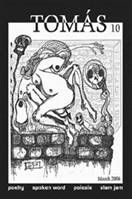








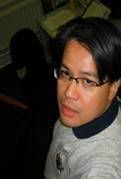



































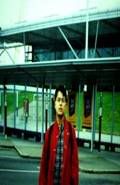



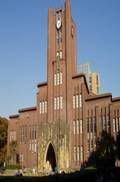




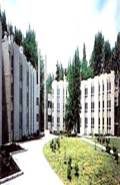







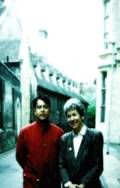

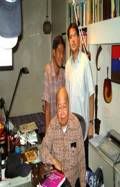

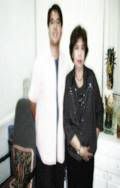
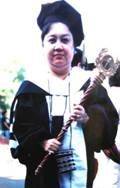


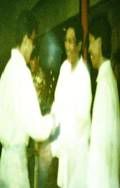

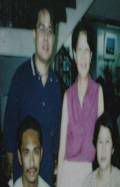
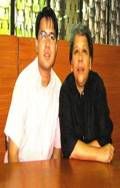
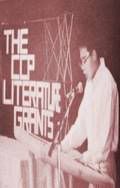
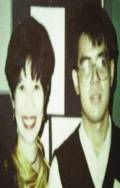

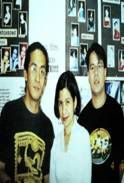
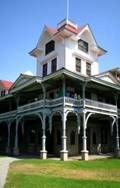

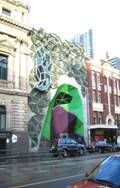











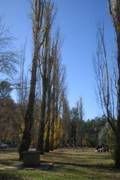


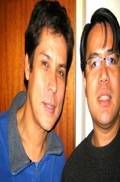


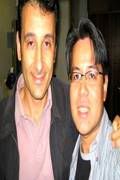
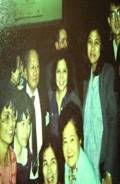
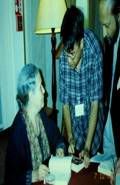
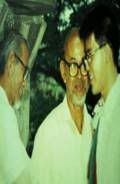
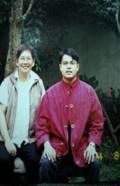

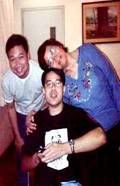
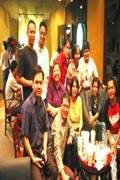

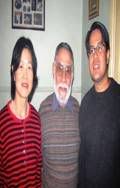
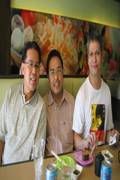
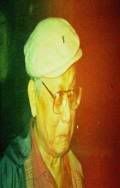
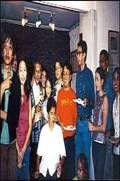
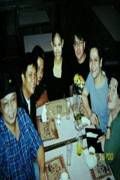
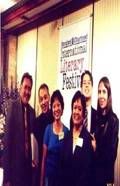
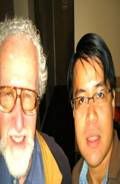
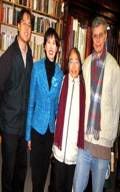

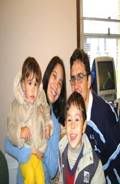
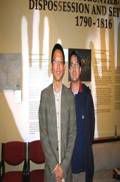
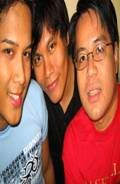

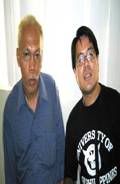
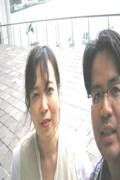
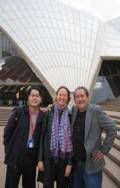
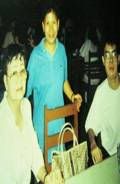

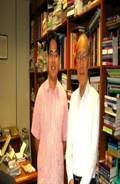
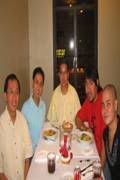
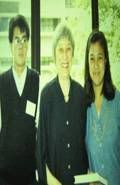

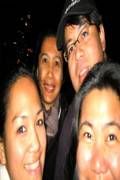
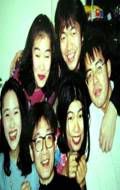

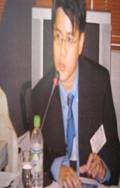
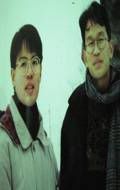
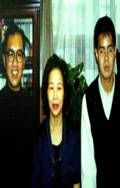
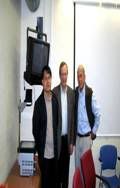


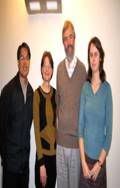
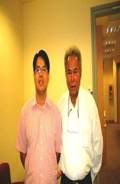
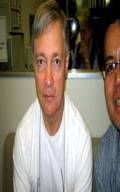
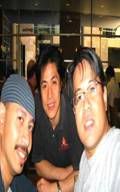
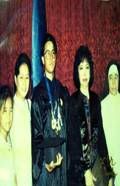
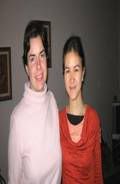
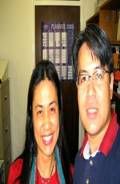
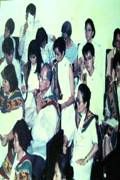
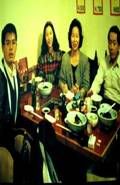
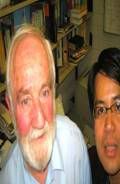

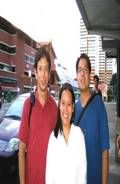
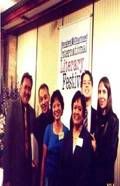
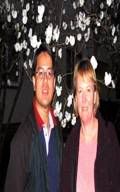



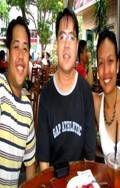
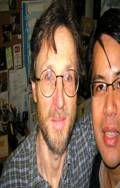
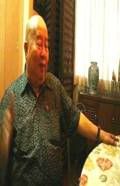

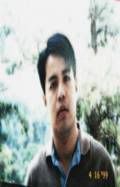

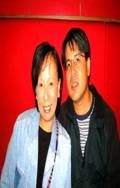


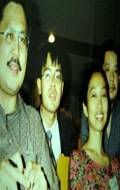
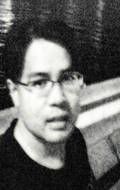
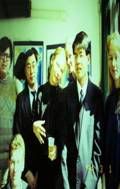
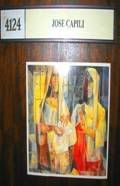

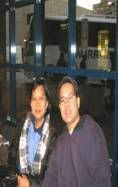
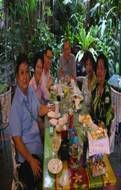
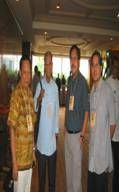
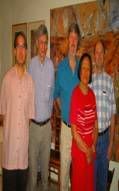
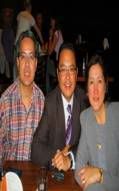
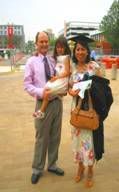
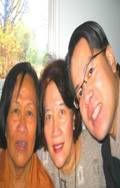
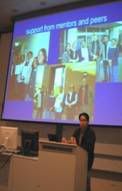

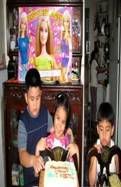
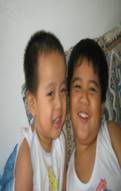




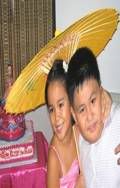
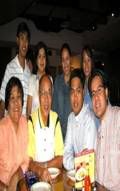
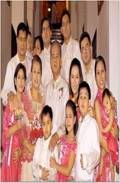







2 Comments:
linked na, sir. thanks! :)
great to hear about you and your poetry! am so proud of you joel! thanks for keeping in touch.
Post a Comment
<< Home